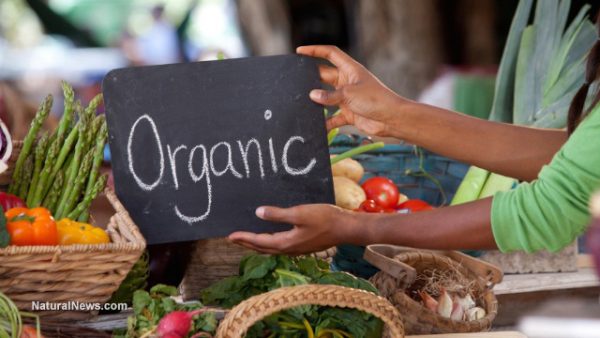Can’t beat them, join them: Campbell gobbles up organic company for $700 million
Wednesday, September 13, 2017 by Rhonda Johansson
http://www.products.news/2017-09-13-cant-beat-them-join-them-campbell-gobbles-up-organic-company-for-700-million.html

Campbell Soup Company announced on July 6 that they have acquired organic food products group Pacific Foods of Oregon, Inc. for a total amount of $700 million. The agreement will augment Campbell’s lackluster natural foods arm and help reinvent the company’s center store as it continues to expand into the organic market. Pacific Foods will continue to operate in its plant in Tualatin, Oregon while its CEO Chuck Eggert will stay on as a supplier of key ingredients.
Campbell’s President and CEO Denise Morrison said in the company’s written statement, “this acquisition is consistent with our purpose, ‘Real food that matters for life’s moments.’ Pacific is an authentic brand with a loyal consumer following. The acquisition allows us to expand into faster growing spaces such as organic and functional food. Moreover, Pacific Foods is an excellent fit with Campbell — strategically, culturally, and philosophically. It advances our strategic imperatives around real food, transparency, sustainability and health and well-being.”
This marks the fifth acquisition Campbell has made in five years as it struggles to appeal to customers. The nearly sesquicentennial company has been floundering for the last decade due to changing consumer tastes, with Campbell recently reporting declining sales for its third consecutive year. As more people transition to a healthier lifestyle, demand for pre-packaged and canned goods has flagged. (Related: Organic food sales skyrocket across Australia, while GMOs lose traction.)
A recent analysis from Morgan Stanley placed the soup company in the “underweight” category, with company shares lowered to $52 from $55. This speaks volumes to Campbell’s financial health. Further research shows that the company’s revenue dipped nine percent this year compared to the same quarter last year.
The buyout of Pacific Foods is a smart move for Campbell. In 2012, the company acquired Bolthouse Farms, a Grant, Michigan-based producer of organic carrots, smoothies, and juices, for $1.55 billion. Bolthouse was integrated into the Campbell Fresh unit but underperformed in expectations. Several senior Bolthouse managers had to be removed and the entire unit was restructured just to keep Campbell afloat. Undeterred, Campbell continued to stretch its arm and acquired organic baby food company, Plum, and biscuit company, Kelsen in 2013, and hummus maker Garden Fresh Gourmet in 2015. These acquisitions, while not bad investments in general, failed to give Campbell the leg up it needed to maintain its relevance.
This agreement with Pacific Foods may be Campbell’s bridge to the organic soup sector. According to official spokespeople of the company, their relationship with Pacific Foods is an extremely calculated one, as they chose an organic group with a “sustained track record for growth.”
Morrison told Bloomberg: “The acquisition allows us to expand into faster-growing spaces such as organic and functional food.”
Pacific Foods will become part of Campbell’s Simple Meals and Beverages division. This area includes many of the company’s well-known brands including V8, Swanson, Campbell’s, Pace, and Plum Organics. For its part, Pacific Foods can benefit from the relationship in terms of scale. Founded in 1987, the organic food group has only around 540 employees and mostly operates out of Oregon where it produces its namesake products. With Campbell, Pacific would expand its potential customer base exponentially. Eggert described the acquisition as beneficial to both groups, saying, “a future with Campbell means we can maintain what we value while accelerating growth of the brand in a way that we couldn’t do alone, reaching more people while increasing our impact on sustainable agriculture.”
The acquisition will be funded through a combination of short- and long-term debt. Campbell expects to deal to be neutral in earnings by the end of the first year following closing.
Sources include:
Tagged Under: Tags: Campbell's, canned goods, food acquisition, GMO food, nutrition, organic food, organic market growth, pacific food





